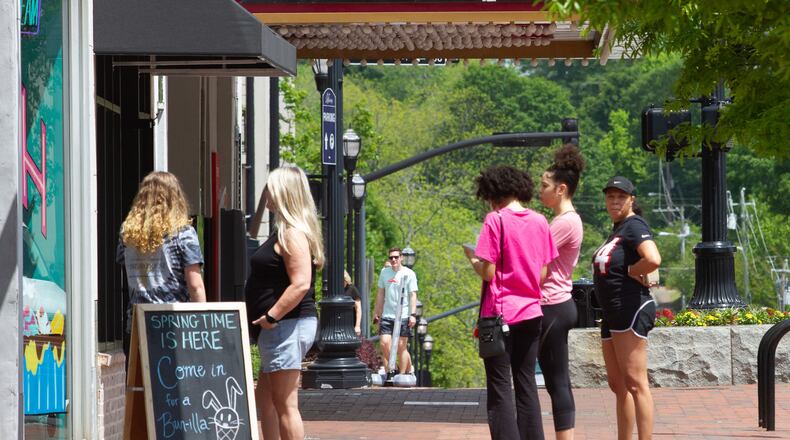Downtown Marietta visitors enjoying a meal at one of the restaurants on the Square can start touring the area with a to-go drink in hand.
The city has established an entertainment district where patrons visiting places licensed to sell alcohol can take away beverages in small cups during a one-year trial period. Marietta’s district includes the restaurants and shops around the Square, but excludes Glover Park. Residents can only take to-go drinks 5-10 p.m. Thursday, 5-11 p.m. Friday and 10 a.m. to 11 p.m. Saturdays.
The district’s northern boundaries include Polk and Lemon streets and the southern end is bounded by South Marietta Parkway. Atlanta and Cherokee Streets make up the eastern boundary, and includes the commercial block at the northwest corner of Atlanta and Roswell streets. The district’s western boundary is South and North Marietta Parkway.
Credit: City of Marietta
Credit: City of Marietta
Drinks will only be served in cups no larger than 12 ounces, and customers can not take more than one drink at a time from an establishment. All drinks must be consumed within the district. Residents are also prohibited from bringing their own alcoholic drinks to consume in the district.
Cities such as Smyrna, Kennesaw, Powder Springs and Acworth all have entertainment districts. The Battery Atlanta also has an open container zone.
City Council members approved the change in May 2019, but Mayor Steve “Thunder” Tumlin vetoed it. City Councilwomen Michelle Cooper Kelly and Cheryl Richardson, in October, brought the idea back up for discussion.
The proposal attracted support from restaurants on the square, which said the policy could help them amid the coronavirus pandemic.
About the Author
Keep Reading
The Latest
Featured





